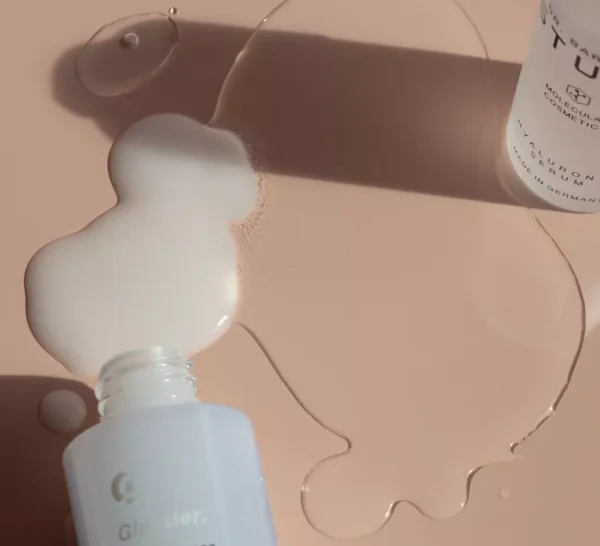
7 Ways to Regrow Thicker Hair (Without Harsh Treatments)

Noticing more hair in your brush or feeling like your ponytail isn’t as full as it used to be? Hair thinning is incredibly common and can happen for many reasons—stress, diet, hormones, or even just the natural ageing process.
But you know what?
You don’t need harsh treatments to get back thicker, healthier hair. Small, consistent changes can make a world of difference.
While some hair loss is temporary and linked to lifestyle or hormonal changes, other cases require targeted treatment.
1. Nourish Your Scalp for Optimal Hair Growth
Your scalp is the foundation for healthy hair growth. If it’s dry, irritated, or clogged with product buildup, your hair won’t thrive. Think of it like soil—healthy roots mean healthy growth. Here’s how to nourish your scalp:
- Scalp Massages: A few minutes a day boosts circulation and encourages growth. Try using your fingertips or a scalp massager while shampooing to improve blood flow.
- Essential Oils: Rosemary oil is a game-changer—it’s been shown to be as effective as minoxidil in some studies. Peppermint oil and tea tree oil can also promote a healthier scalp.
- Exfoliate Gently: A mild scrub or clarifying shampoo once a week removes buildup and allows follicles to breathe. Avoid overdoing it, as stripping natural oils can do more harm than good.
- Switch to a Silk Pillowcase: Cotton pillowcases create friction, which can lead to breakage. Silk is gentler and helps keep hair smooth.

2. Fuel Hair Growth with the Right Nutrients
You are what you eat—and so is your hair. If your diet is missing key nutrients, your hair will show it. Focus on:
- Protein: Hair is made of keratin, a protein, so don’t skimp on eggs, fish, or plant-based sources like lentils and quinoa.
- Iron & Zinc: Deficiencies in these minerals are linked to hair shedding. Think leafy greens, nuts, seeds, and red meat (or lentils and pumpkin seeds for a plant-based boost).
- Omega-3s: Found in flaxseeds, walnuts, and salmon, these help keep hair hydrated and strong.
- Vitamin C & E: These antioxidants help combat oxidative stress that can contribute to hair thinning. Load up on citrus fruits, berries, and avocados.
3. Be Kind to Your Hair to Reduce Damage & Breakage
The way you handle your hair daily impacts its thickness and strength. Treat it with care:
- Ditch Harsh Sulfates. They strip natural oils, leaving hair brittle. To maintain moisture, opt for gentle, sulfate-free shampoos.
- Minimise Heat Styling: Excessive heat weakens hair over time. If you must style it, always use a heat protectant and lower the temperature settings.
- Wet Hair = Fragile Hair: Hair is most vulnerable when wet. Use a microfiber towel to blot dry gently and detangle with a wide-tooth comb instead of brushing aggressively.
- Reduce Tight Hairstyles: Constant pulling (tight ponytails, buns, or braids) can lead to traction alopecia. Opt for looser styles to prevent unnecessary stress on the scalp.
4. Lower Stress Levels to Prevent Hair Loss
Ever notice extra hair loss during stressful times? That’s because stress triggers shedding by pushing hair follicles into a resting phase. Try:
- Meditation & Deep Breathing: Even 5-10 minutes a day can help calm stress levels.
- Regular Exercise: Movement increases circulation, which benefits your scalp and hair growth.
- Quality Sleep: Sleep is when your body repairs itself, including your hair follicles. Prioritise rest to keep stress hormones in check.
Understanding the cause is key to finding the right approach. Learn more about hair loss treatment for women in this guide by The Maitland Clinic.
5. Hydration is Key for Thick, Healthy Hair
Dehydration affects your scalp and strands, leading to breakage and dullness. Keep your water intake up, and consider hydrating hair treatments like:
- Aloe Vera: Soothes the scalp and locks in moisture.
- Coconut Oil: Helps prevent protein loss and keeps hair strong.
- Hyaluronic Acid Hair Treatments: Just like it hydrates your skin, it can do wonders for dry hair.

6. Upgrade Your Sleep Routine for Stronger Hair
Your body (and hair) repairs itself while you sleep. Aim for 7-9 hours of quality rest so your hair can grow strong and healthy. Consider using a silk or satin pillowcase to minimise friction and reduce breakage overnight.
7. Support Hair Regrowth with Supplements
If your diet is lacking, a well-rounded supplement can help. Look for:
- Biotin: Supports keratin production and strengthens hair.
- Collagen: Provides essential amino acids for hair structure.
- Vitamin D: Deficiency has been linked to hair loss, so getting enough is key.
- MSM (Methylsulfonylmethane): Helps improve hair thickness and strength.
Always check with your doctor before adding new supplements to your routine.
Stay Consistent—Patience Leads to Thicker Hair

Regrowing thicker hair is a journey, not a quick fix. With small, intentional changes, you’ll start noticing improvements over time. Stay consistent, be patient, and trust the process—your hair will thank you for it. Remember, healthy hair starts from within, so take care of yourself, and your hair will follow suit!












































